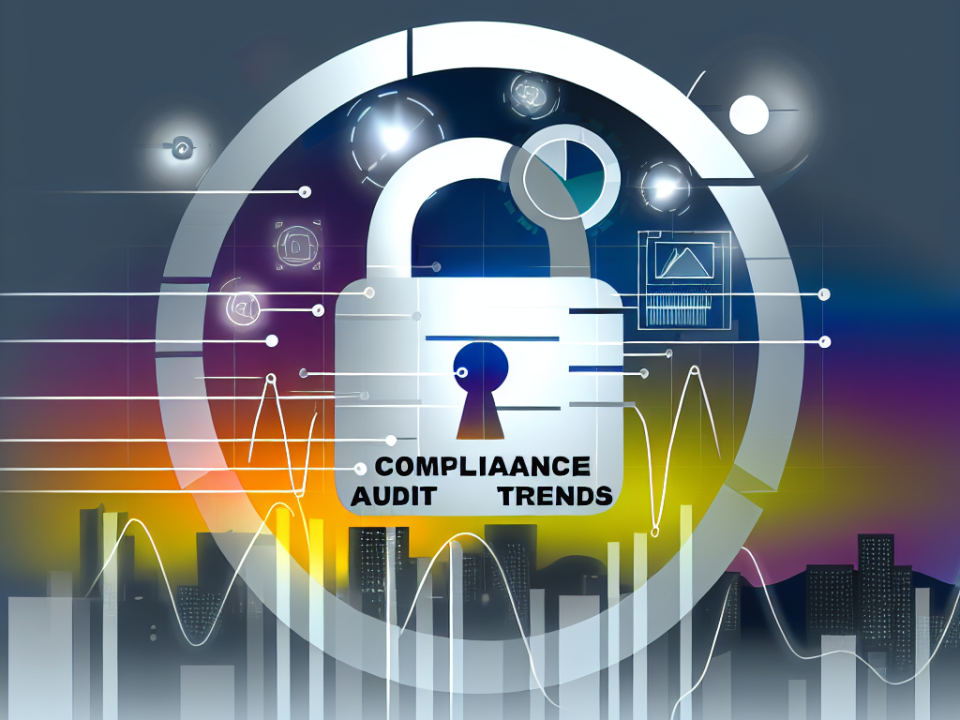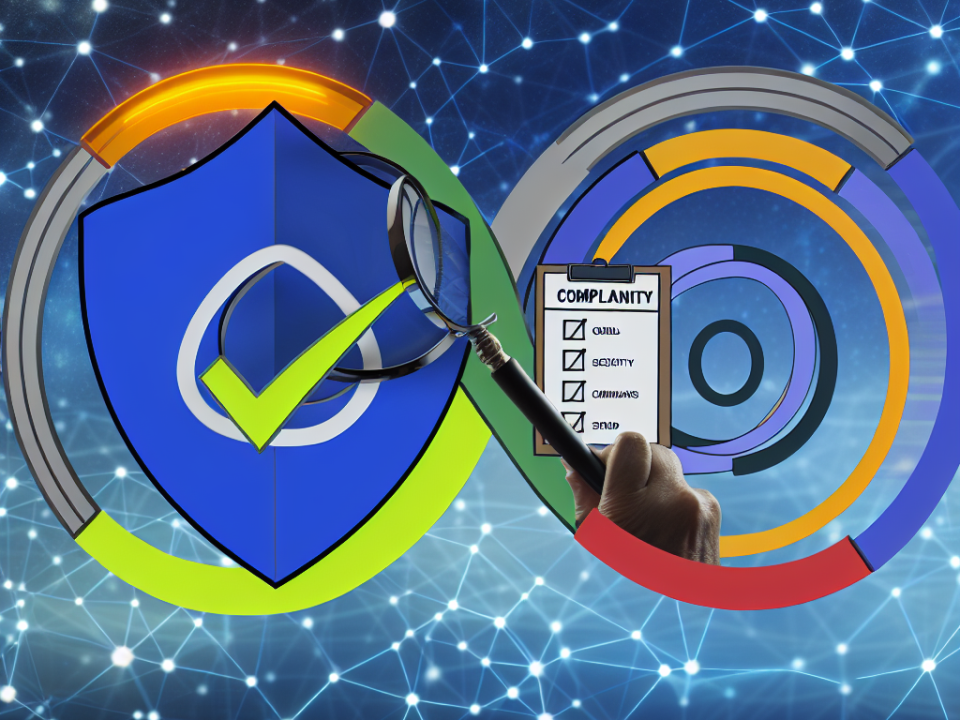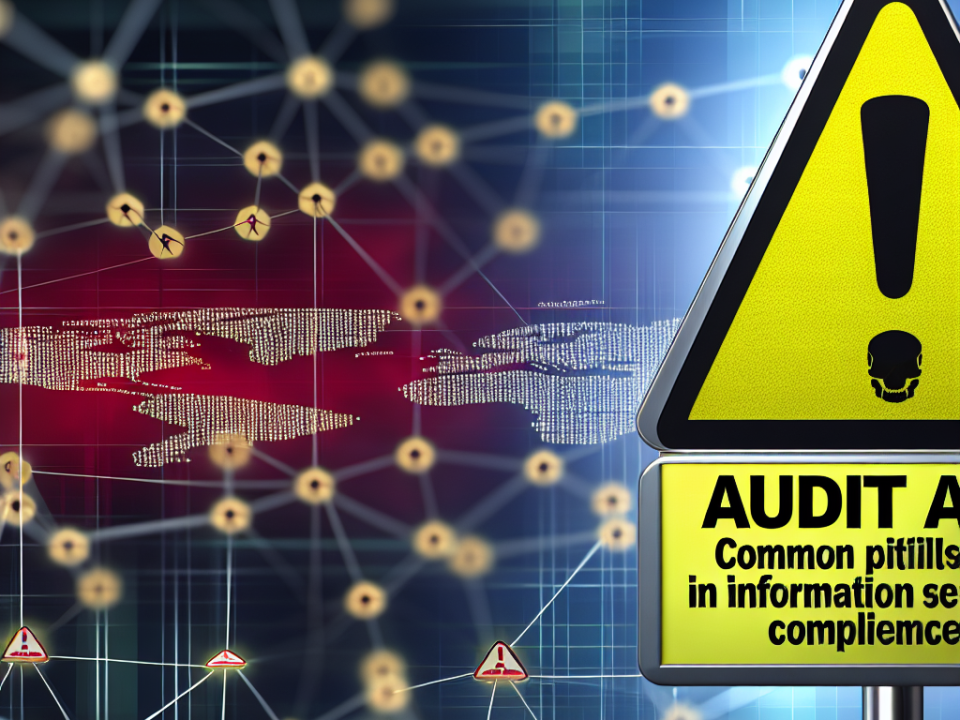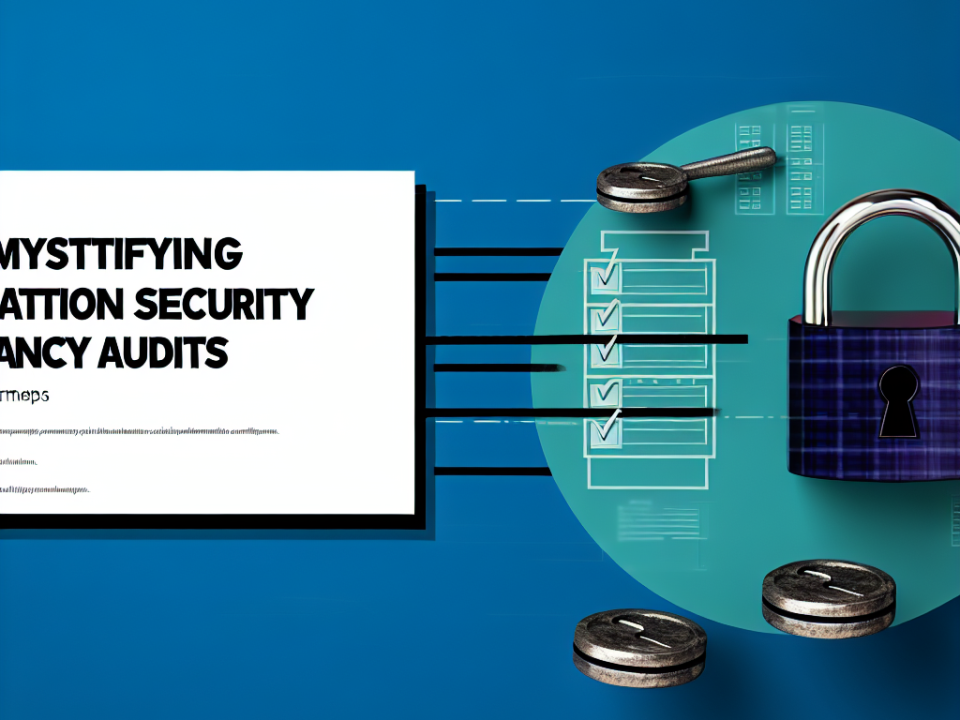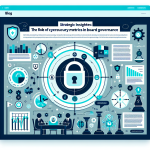
Strategic Insights: The Role of Cybersecurity Metrics in Board Governance
September 8, 2025
Securing the Boardroom: Understanding Cybersecurity Metrics for Leadership
September 9, 2025
In an era where digital assets are as valuable as physical ones, the significance of robust cybersecurity policies cannot be overstated. As business leaders, ensuring the protection of sensitive data is not merely a regulatory obligation; it’s a crucial component of sustaining trust and credibility in today’s competitive landscape. With cyber threats evolving at an alarming rate, it’s essential to ask: Are your cybersecurity policies up to standard?
The Importance of Effective Cybersecurity Policies
-
Risk Mitigation: A well-structured cybersecurity policy serves as the first line of defense against potential threats. It identifies vulnerabilities, categorizes data sensitivity, and outlines appropriate safeguarding measures.
-
Employee Awareness and Training: Your employees are often the most significant security risk. Comprehensive policies inform staff about their responsibilities regarding data protection and equip them with the knowledge to recognize potential threats, such as phishing attacks.
-
Regulatory Compliance: Various industries are subject to stringent regulations that mandate specific cybersecurity measures. Staying compliant not only helps avoid penalties but also enhances your business’s reputation.
- Crisis Management: In the event of a cyber incident, having predefined protocols helps in minimizing the impact and restoring normal operations quickly.
Core Components of a Robust Cybersecurity Policy
1. Data Classification and Handling
Understanding the sensitivity of the data your business handles is crucial. Different categories of data may require different protective measures. A solid policy should classify data into categories (public, internal, confidential, and restricted) and outline handling procedures for each.
2. Access Controls
Implementing stringent access controls based on the principle of least privilege ensures that employees only have access to the data necessary for their roles. Regularly review user access levels to prevent unnecessary exposure.
3. Incident Response Plan (IRP)
An effective IRP is vital for minimizing damage in the event of a breach. This plan should include procedures for detecting, responding to, and recovering from incidents, as well as communication protocols for informing affected parties.
4. Regular Training Programs
Cybersecurity is not a one-time effort. Regular training and workshops should be scheduled to keep employees updated on the latest threats and tactics. Engaged employees are your first line of defense.
5. Policy Review and Updates
The cybersecurity landscape is continually changing. Regular reviews and updates of your policies ensure they remain relevant in the face of new threats, technologies, and regulatory requirements.
6. Third-Party Risk Management
Evaluate the cybersecurity measures of third-party vendors and partners who handle your organization’s data. Your organization may be exposed to risks through their lax security measures. Make it a policy to regularly assess and, if necessary, remediate risks posed by third parties.
Testing and Audit
To ensure the effectiveness of your cybersecurity policies, regular testing and audits are indispensable. Conduct routine penetration testing and vulnerability assessments to identify weaknesses. Additionally, consider hiring an external auditor to provide an unbiased review of your cybersecurity posture.
Embracing a Cybersecurity Culture
Establishing a culture of cybersecurity within your organization encourages employees to prioritize security measures as part of their daily operations. This creates an environment where security is everyone’s responsibility, significantly decreasing the likelihood of human error.
Conclusion
As business leaders, it is critical to remain proactive about cybersecurity. Evaluating and updating your policies regularly not only safeguards sensitive data but also strengthens trust with clients and stakeholders. Remember, in the fight against cyber threats, being prepared is your best defense. Make the commitment to uphold high cybersecurity standards within your organization and navigate the digital landscape with confidence.


